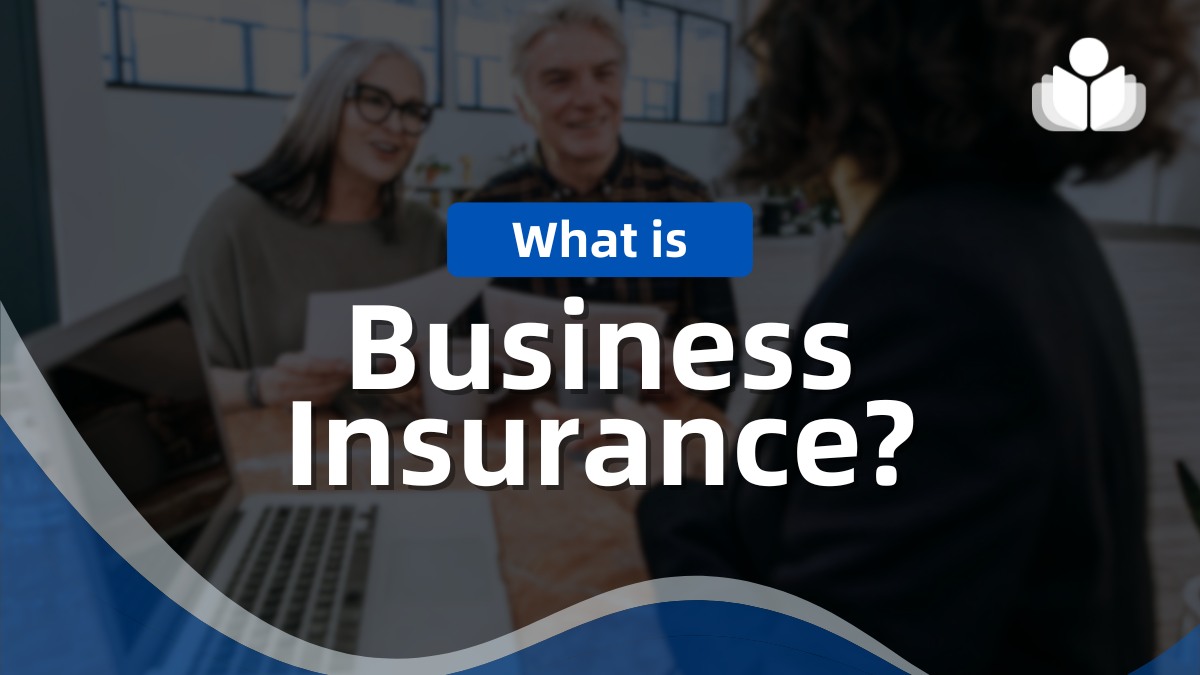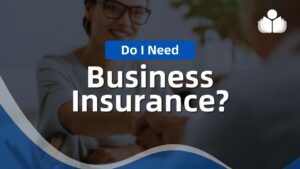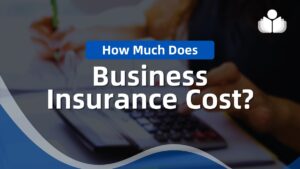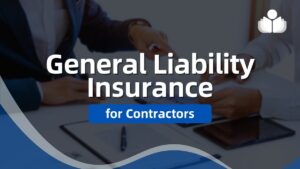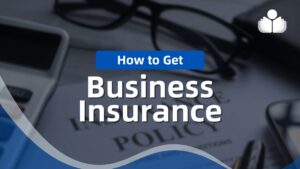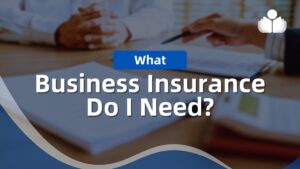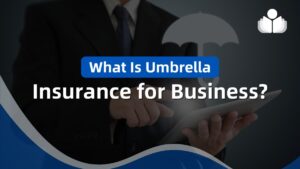Business insurance safeguards companies against losses from various risks, including property damage, legal liability, and employee injuries. Several types of business insurance policies are available, such as commercial property insurance, General Liability (GL) insurance, professional liability insurance, commercial auto insurance, and workers’ compensation insurance.
>> Explore NEXT for Comprehensive Coverage >>
What Is Commercial Insurance?
Commercial insurance, also known as business insurance, protects companies from losses due to unexpected events during normal operations, such as lawsuits, natural disasters, or accidents. Commercial insurance covers property damage, legal liability, employee-related risks, and more.
Companies assess their commercial insurance needs based on potential risks, which can vary depending on the type of business and its environment. Understanding the different business insurance and what they offer is crucial for adequate protection.
How Commercial Insurance Works
Small business owners must carefully evaluate their risks as they may face personal financial exposure in the event of a loss. Commercial insurance protects business owners from potential losses due to unexpected events they couldn’t afford to cover, allowing businesses to operate despite inherent risks.
To secure business insurance, work with a reputable and licensed insurance broker. You can obtain a list of licensed agents in your state through your state’s Department of Insurance or the National Association of Insurance Commissioners.
>> Get Your Business Insured With NEXT! >>
Types of Commercial Insurance
Federal regulations mandate certain types of insurance, such as workers’ compensation. Some states may require specific types of businesses to carry additional coverage. In most cases, it’s wise for businesses to protect themselves with insurance beyond the legal requirements. Here are seven common types of business insurance:
Commercial General Liability Insurance
Commercial general liability insurance is essential for all businesses. It is comprehensive insurance, though it does not cover all risks. General liability covers bodily injury, property damage, medical expenses, libel, slander, legal defense costs, and settlement bonds or judgments.
Professional Liability Insurance
Unlike general liability insurance, which applies to any business, professional liability insurance (PLI) is specifically designed for businesses that provide services. This coverage protects against losses caused by the services provided, including expenses related to malpractice, negligence, or errors.
Commercial Property Insurance
Property insurance is essential for businesses with significant physical assets, such as equipment, signage, inventory, and furniture. It protects the business from losses due to events like fire, storms, or theft. Property insurance can cover damage to items like inventory, computers, furniture, and signage.
Home-Based Businesses
If you’re operating a home-based business, you’ll likely need additional coverage for equipment and inventory. Standard homeowner’s policies rarely cover home-based businesses the way commercial property insurance does. You can add home-based business insurance to a homeowner’s policy as a rider, providing a small amount of equipment and liability coverage.
Product Liability Insurance
Product liability insurance is essential for product-related businesses, such as manufacturers, wholesale distributors, and retailers. This insurance protects a business from costs associated with damages caused by products, such as a defective product causing bodily injury or harm. Without product liability insurance, a business could be vulnerable to expensive lawsuits.
Vehicle Insurance
Any vehicles used for business should be insured. Whether you have vans, buses, tractor-trailers, or passenger cars, insurance is necessary to cover damage to the vehicles or cargo and injuries to others. Each state has a minimum required insurance amount. Several factors can affect the price of vehicle insurance, including the driver’s driving record and the vehicle’s condition.
Business Interruption Insurance
Business interruption (or continuation) policies are particularly important for companies with physical locations, such as retail stores or manufacturing facilities.
Business interruption insurance compensates a business for lost income due to events that disrupt normal operations. It’s typically added as a rider to a property insurance policy or included in a business owner’s policy. Policies may also feature a civil authority provision, which details compensation if government actions close the business.
How Much Does Commercial Insurance Cost?
The cost of a commercial insurance policy varies based on factors such as your business type and the coverage you choose. According to Progressive, the median monthly cost of a business owner’s policy is $70. Hartford reports that the median monthly cost of its commercial policies is $55.
What Affects How Much Business Insurance Costs?
Several factors can influence the cost of a business insurance policy, including the number of employees, the business location, and the amount of coverage desired. More employees and higher coverage levels result in higher policy costs. Prices also vary by region due to differing associated risks.
How Do You Get Commercial Insurance?
You can obtain commercial insurance through an agency that offers the type of policy you need. Working with an insurance agent at a company can help you get a quote and guide you through your options and the application process. Policies can often be purchased online or by calling the insurance agency.
What Business Insurance Doesn’t Cover?
Business insurance covers a wide range of risks, but certain losses and events are typically excluded from coverage. Common exclusions from business insurance policies include:
Intentional and Criminal Acts
The insurance company will not cover claims for damage intentionally caused by the insured, an employee, or a key person, nor will it cover claims involving fraud or theft by those individuals.
Lack of Maintenance or Mitigation
Business insurance providers will not cover damages resulting from a lack of maintenance. For example, they will not cover damage to a roof that was not properly maintained and subsequently suffered water damage from leaks.
Catastrophic Damage
Commercial property insurance rarely covers damage from floods, earthquakes, wars, or acts of terrorism, as these events can impact many policyholders simultaneously and result in significant losses for insurance providers.
Business owners can often purchase separate insurance policies or riders to cover these losses. If your business has suffered a loss and you need financial help, consider these options:
- SBA Funding Programs: The Small Business Administration (SBA) offers various funding options for needy businesses, including disaster assistance and economic injury loans.
- Private Lenders: Many private lenders offer loans to businesses. Use online resources like Money.com to compare lenders and find the best rates and terms for your needs. Our guide to the best small business loans can also serve as a helpful starting point.
How to Buy Business Insurance
Before comparing small business insurance costs and policies online, take some time to plan your coverage needs. This will save you time and money in the long run.
Here are six steps to follow:
1. Take Stock of Business Assets
As a small business owner, create a list of everything your business owns, including property, equipment, and inventory. Determine the value of these assets to ensure you have sufficient coverage to replace them if they are damaged or lost. This step is crucial for ensuring your insurance policy protects your business investments.
2. Identify Coverage Needs
Consider all of your business’s functions and activities. Then, determine which types and levels of coverage are necessary to protect your business from the risks associated with those activities. This approach ensures comprehensive protection tailored to your specific business needs.
3. Get Professional Help
It’s best to work with an insurance professional who handles products from multiple insurers, such as an independent insurance agent or an online marketplace. They can assess your coverage needs and help you find the right policies and coverage limits for your business.
4. Compare Quotes From Multiple Insurers
Once you know what coverage you need, it’s time to assess the cost of business insurance. Obtain quotes from multiple insurers, assuming the agent or online marketplace you used still needs to complete this step. This will help you find the best rates and coverage for your needs.
5. Consider Bundling Policies
Many insurers offer discounts when you purchase multiple policies together. Bundling policies can save you time and effort when paying premiums, contacting customer service, and filing claims.
6. Review Coverage Regularly
Your business needs may change over time, so it’s important to periodically review your coverage to ensure it aligns with your current requirements.
>> Ensure Your Business Future With NEXT >>
Best Insurance Companies for Your Business
- Obtain a quote and purchase a policy online in just minutes
- Easily access and share your certificate of insurance online
- NEXT provides some pricing information online, allowing you to get ballpark figures before requesting a quote
- Doesn’t offer certain specialized coverage types, such as key person insurance or directors and officers insurance
NEXT’s general liability insurance premium provides unique, affordable solutions to damage claims quickly. Typically, an insurance adjuster evaluates the damages and decides within two days of filing the complaint.
The company can identify the necessary policies by sharing information about your LLC with NEXT and providing a quote within minutes. You can complete the purchase online but still call an insurance agent for help if needed. You can access and share your certificate of insurance online as needed.
- Professional liability policies provide global coverage for your work
- Industry-specific packages simplify the process for business owners to identify the necessary coverage
- Quotes and purchases for general liability policies can be done online
- Hiscox business owner’s policies are not available in every state
Hiscox is an excellent choice due to its competitive pricing and comprehensive coverage. One of the standout features of Hiscox is its cost-effectiveness.
They offer affordable premiums that fit your budget, allowing you to allocate resources wisely while obtaining the necessary coverage. Their low-cost general liability insurance policies cover bodily injury, property damage, and personal injury claims.
- Above-average customer satisfaction ratings for auto insurance shopping
- Includes free benefits like new car replacement with AARP auto insurance policies
- Higher than expected number of complaints for auto insurance policies
Hartford is a reputable provider of business insurance, offering comprehensive coverage tailored to the needs of small to large businesses. Their user-friendly online portal allows policyholders to obtain quotes easily, make policy changes, request certificates of insurance, and track claims.
They provide the convenience of filing claims online, even without an account. While small businesses can begin the quote process online, completing the application may require assistance from an agent.
Hartford’s website offers various options to get started, including direct contact, filling out a contact form, or connecting with a local independent agent.
What Documents Are Needed for a Business Insurance Policy?
The information and paperwork required to purchase a business insurance policy will vary depending on the type of policy or policies you want to buy. However, you should have the following items on hand:
- Business name, location, and partners
- Business registration and incorporation documents
- List of business assets and liabilities
- Information on your business checking account (if you don’t have a separate business checking account, consider Money’s best business checking accounts)
- Number of employees (if applicable)
- Contact information for yourself and the company
- Health and safety policy documents
- Professional certificates (if applicable)
- Estimated revenue for the upcoming year
- Description of business operations and occupational hazards (e.g., handling hazardous chemicals, performing on-site installations for clients)
- Information about company vehicles and driver details (for commercial auto insurance)
- Insurance history, including existing policies and prior claims
>> Ensure Your Business’s Future With NEXT >>
What Is Business Insurance? – FAQs
The Bottom Line – What Is Business Insurance
Commercial insurance is a valuable tool that protects businesses against potential losses from unexpected events. When shopping for business insurance, explore various policy options and ensure you fully understand the terms of each. Consult a professional financial advisor to review the options and determine which policy types best suit your business.
 Sections of this topic
Sections of this topic
